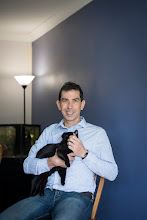I met this amazing Lady , Dr Helen Jones at Australian AVA conference. It seems like she is doing great things for the Black Rhino. This a great educational travel trip she has organized, I know several people who are going this year. I would love to be going sometime.
See details below
AUSTRALIAN VETERINARY WILDLIFE STUDY TOUR OF ZIMBABWE AND BOTSWANA
Facilitated for Edutravel by the SAVE FOUNDATION of Australia
Sunday 5 September – Sunday 19 September
(with additional options in Botswana and South Africa until Sunday 26 September)
This educational study tour will be led by Dr Helen Jones and Dr Ian Fairnie, both of whom are former National Presidents of the Australian Veterinary Association. Participants will meet with veterinarians in Zimbabwe as well as officers from the Parks and Wildlife department, and staff working for not-for-profit organisations active in wildlife conservation.
The program in Zimbabwe will be facilitated by the President of the SAVE FOUNDATION of Australia, Mr Nicholas Duncan, who has dedicated his life to saving the Black Rhino in Zimbabwe. He has visited Zimbabwe 53 times. The SAVE FOUNDATION of Australia has raised over $3.2 million donating the amount to buy field equipment, including eleven 4-wheel drive vehicles, 15 motor bikes, 15 outboard motors, 10 reconditioned engines and gearboxes, numerous sets of radios and spare parts for all of the above, that greatly increase anti-poaching efforts, and in the process saving not only rhinoceros, but also lions, leopards, hyenas, the African Painted Dog and elephants. Unlike many other non-profit making organisations, it is a totally voluntary foundation, with all its expenses - secretarial, communications, and travel - sponsored by a private company. It is one of the NGO’s with the lowest overheads in the world (less than 3%). On 18 June 2009, the Zimbabwe Council for Tourism (ZCT) awarded the SAVE FOUNDATION of Australia its Green Globe 21 Trophy for contribution to or action on the environment.
HIGHLIGHTS: At each safari location, qualified guides and wildlife officers will take participants out to see and photograph giraffe, lion, elephants, baboon, buffalo, and possibly leopard, plus countless birds including carrion feeders.
During the 6 days in Hwange National Park, participants will meet staff involved in anti-poaching and other conservation activities such as the tracking of lion and the African Painted Dog, and perhaps participate in the implanting of tracking devices.
The final option sees the program finish in Cape Town for three nights and includes a visit to Robben Island where Nelson Mandela was held for 20 of the 27 years he spent as a prisoner.
At all locations, where possible, meetings are planned with local private and government veterinarians, as well as wildlife conservation officers.
ACCOMMODATIONS: After the first two nights in a Harare hotel, there will be two nights at Imire Safari Ranch and 5 nights in Hwange National Park in Zimbabwe with excellent accommodations with all meals and drinks provided. There will be two nights at the splendid and luxurious Victoria Falls Hotel where the program includes a helicopter ride above the falls, an elephant ride, and visits to lion and rhino conservation projects, as well as the morning markets. One night will be spent enjoying a Boma dinner – if you are “game”, after a sunset river cruise and open bar. The main program finishes with two nights at the Chobe Marina Lodge and for those continuing on the program in Botswana, there will be three nights at Xakanaxa Camp with all meals and drinks provided unless otherwise stated.
COSTS: The program in Zimbabwe and an overnight visit to Chobe (Botswana) is estimated to cost $6995 of which approximately $2000 is international airfares from Australia to South Africa. An additional week in Botswana at Chobe National Park and the Okavanga Delta, and a 4-night visit to Cape Town in South Africa is estimated to cost an additional $3995
Websites to visit:
http://www.imiresafariranch.com/
http://www.game-reserve.com/zimbabwe_hwange_np.html
http://www.thehide.com/
http://www.africansunhotels.com/Index.cfm?fuseaction=HOTELS.info&name=Hwange_Safari_Lodge
http://www.victoria-falls-hotels.com/Vicfallshotel_Zimbabwe.asp
http://www.africanimpact.com/news/2007-11/lion-rehab-release.php
http://www.thebomarestaurant.com/
http://www.chobemarinalodge.com/
http://www.chobe-national-park.com/
http://www.xakanaxa-camp.com/
http://www.robben-island.org.za/
Friday, June 25, 2010
Tuesday, June 8, 2010
A dog runs into a stick and loses an eye.
A man ran into the vet surgery with his dog this morning saying that his dog's eye had come out. We took him straight through to the consultation room and had a look at the eye. Apparently the dog had been running madly around the yard when he hit a stick that went straight into the dogs eye and he said all the white fluid came out. On examination all I could see was a Major defect in the cornea of the eye and blood filled chamber. I recommend they go straight to the eye specialist but he said they had very little money. Well the dog had probably already lost sight in the eye and we could do was to try and save the structure, we gave him pain relief and antibiotics drops. The owners where very upset and the young lad wanted to keep going outside to be sick. Our eyes are so precious and it is always very upsetting to lose an eye. The eye might fibrous or might become infected and have to be removed.
Subscribe to:
Posts (Atom)
